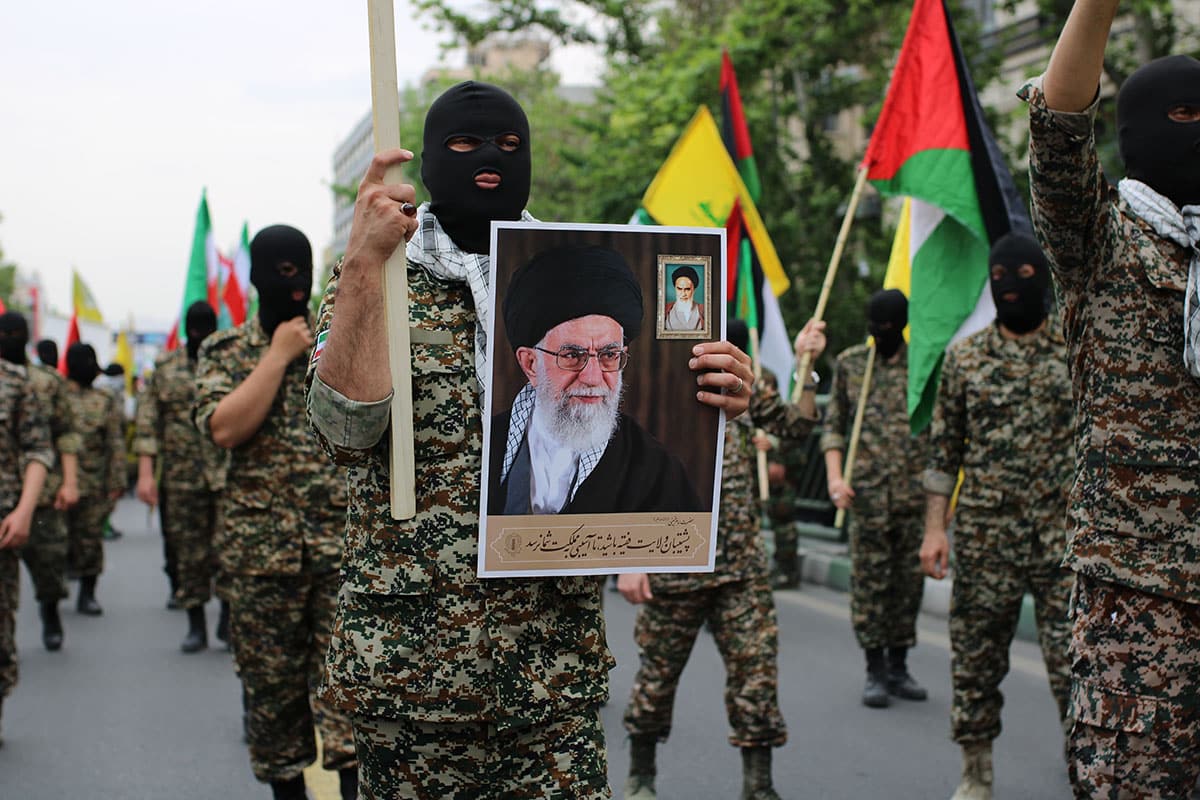This week has been rife with reports that Israel is leaning toward a military campaign in the north. A moment before the planes scramble, it may be worth rethinking the plans.
On October 8, Hezbollah opened war against Israel. While Hezbollah has primarily mounted attacks, and done so over a constantly expanding area, Israel has primarily mounted defense, using preventive operations, targeted killings, and destruction of launchers.
Israel is displaying weakness despite its actual strength. But at the same time, the more Israel refrains from displaying strength, the weaker it becomes. So why not go toe to toe at last and pay Hezbollah back in its own coin?
In a “Hezbollah First” scenario, as I’ll call it, Israel presses forward in the fight against Hezbollah, suffers weeks (or more) of accurate attacks on strategic assets, on civilians, and on fighters, and draws criticism from abroad that might be expressed in an arms embargo or in arrest warrants from the Hague against the country’s leaders. At this point, the Iranians may blithely assemble their nuke.
The Iranian leaders are rational players who want to reach their goal as efficiently as possible. If they consider the nuke an appropriate tool, they’ll use it. But even more ominously — they won’t have to.
An Iranian nuke will mean Israel’s hands are tied. Israel will have no role in the next round of play. Iran’s standing will benefit, and so will its military and its economy. Iran will quickly restore the military clout of its proxies but leave spots of ruin, and civilians with their diseases, as a powerful resource for propaganda and international funding.
What’s more, in order to halt the suffering of civilians “on both sides,” the US will revive a policy that it’s already tried to push through: It will declare a Palestinian state.
The result may well be a weakened Israel, completely dependent on the Americans — an Israel with a stumbling economy and a shattered society. The wolves lurking all around will find their hunger hard to control.
In an “Iran First” scenario, on the other hand, an Israeli attack could bring down the Iranian regime and put paid to the Iranian nuke. Israel would have enough strength left for dealing with the Iranian proxies in Lebanon and Gaza, which would be weakened by the bashing of the head of the snake. And after that, it would be time for rebuilding and growth.
There are those who believe that an attack against Iran must concentrate on its nuclear facilities. Prof. Benny Morris, the historian, published an article in the Haaretz newspaper headlined “To Survive, Israel Must Strike Iran Now: If Israel proves incapable of destroying the Iranian nuclear project using conventional weaponry, then it may not have any option but to resort to its nonconventional capabilities.”
Morris, who in the past was considered too far left to be employable in Israel and considered emigrating, has come to the conclusion that Iran does seriously intend to destroy Israel, that the day of judgment has come, and that the appropriate weapon should be deployed to the extent that it’s available.
I don’t know whether Morris has made a perfect prediction. But I’d like to put forward the proposition here that we don’t need to attack the Iranian nuclear sites in specific, although that might be the best course. Conventional weapons can be enough to destroy the Iranian nuclear capability.
Iran is suffering from a number of problems. Among its many ethnic and national minorities, the regime’s legitimacy is broadly rejected. The country’s air defenses are weak, its borders are long and undefended, and its military capabilities are not very strong. In order to sow destruction and shock in Tehran, no doomsday weapon is necessary.
One example showing the fragility of the Iranian regime is the episode of the “War of the Cities” during the Iran–Iraq war.
After eight years of bloodletting between Iran and Iraq, the war turned a corner at the end of February 1988. Military operations by Iraq brought a change. First Iraq attacked the refineries in Tehran and forced Iran to return to rationing fuel.
Next, after Tehran began the War of the Cities, Iraq launched a pre-planned attack by bombarding Tehran every day with long-range missiles. Although damage from the attacks was limited, for more than two months they combined with additional psychological factors to severely damage Iranian morale and they spurred millions of civilians to leave. What Iraq hadn’t accomplished in eight years, it managed to do in a couple of months.
Granted, today’s circumstances are different, historically and militarily. But the War of the Cities does carry a lesson, and an inspiration.
Would such an attack cost Israel very heavily? Apparently yes. Can Israel resort to some other strategic option that doesn’t depend on the hope for a deus ex machina? Not confidently.
Wise recruitment work can build an international coalition to lead the attack, to destabilize the Iranian regime from outside, to challenge it from inside, and to bring it down. Then a new regime can be helped to establish itself, to dismantle the nuclear infrastructure, and to rehabilitate Iran.
Israel needs to go to work assembling a Middle Eastern coalition that can in turn enlist the Europeans, the Americans, and the international public. They all need to understand that if the Iranians entrench their control of the Middle East, they will proceed to attack Europe and then, with the assets they have acquired there, they’ll attack the US. The US will be standing alone then, with no allies, when Iran, Russia, and China come to divide it up.
The views expressed in this article are those of the author and do not necessarily represent the views of the movement



